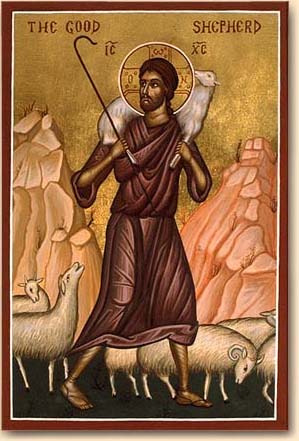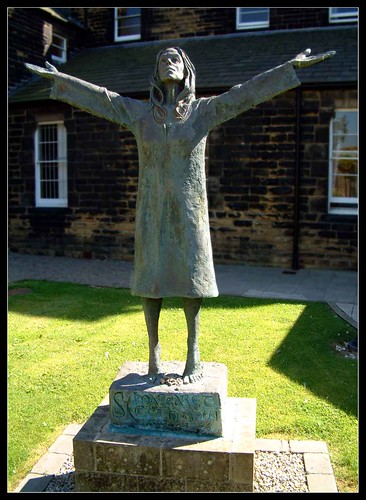Saint Columba of Iona, 521-597

For the purposes of controversy it has been maintained some that St. Columba ignored papal supremacy, because he entered upon his mission without evidence of the pope's explicit authorization. This is because in those days a mandate from the pope was not deemed essential for the work which St. Columba undertook. This may be gathered from the words of St. Gregory the Great, relative to the neglect of the British clergy towards the pagan Saxons (Haddan and Stubbs, III, 10). Columba was a son of the Irish Catholic Church, which taught from the days of St. Patrick that matters of greater moment should be referred to the Holy See for settlement. St. Columbanus, Columba's fellow-country-man and fellow-churchman, asked for papl judgment (judicium) on the Easter question; so did the bishops and abbots of Ireland; and there is not the slightest evidence to prove that St. Columba differed on this point from his fellow-countrymen.
Furthermmore, the Stowe Missal, which, according to the best authority, represents the Mass of the Celtic Church during the early part of the seventh century, contains in its Canon prayers for the pope more emphatic than even those of the Roman Liturgy. It may also be pointed out that the same Stowe Missal contains before its Canon the invocation "Sancta Maria, ora pro nobis", which epitomizes all Catholic devotion to the Blessed Virgin.
The Venerable Bede thus sums up his testimony: "He [Columba] left successors distinguished for great charity, Divine love, and strict attention to the rules of discipline following indeed uncertain cycles...(as) in the computation of the great festival of Easter, because, far away as they were out of the world, no one had supplied them with the (relative) synodal decrees." (H.E., III, iv).
A suitable pictorial representation would exhibit him, clothed in the habit and cowl usually worn by the Basilian or Benedictines, with Celtic tonsier and crosier. His identity could be best determined by showing him standing near the shell-strewn shore, with currach hard by, and the Celtic cross and ruins of lona in the background...
From the Liturgy and Diverse Services of the Lorrha (Stowe) Missal in use in Columba's time:
"Therefore, most clement Father, through Jesus Christ
Thy Son our Lord, we humbly beseech and pray
Thee, that Thou accept and bless these gifts,
these offerings, these holy and unspotted sacrifices,
which, first, we offer unto Thee for Thy holy Catholic Church: that Thou
graciously keep her in peace, to guard, unify, and govern
her throughout the whole world: together with Thy
Servants, the Orthodox Patriarachs, the Bishops of the
Apostolic See and all who hold the Orthodox and Apostolic faith, and our
Metropolitan, Abbot, and Bishop.
Thy servants and handmaids and all who are present here, whose faith and devotion unto Thee are known and manifest, who offer unto Thee this sacrifice of praise, for themselves,
and for all of theirs: for the redemption of their souls; for their body of elders;
for the purity of all ministers; for the integrity of virgins and the continence of
widows; for mildness of weather, fruitfulness of the lands; for the returning of
peace and an end to division; for the safety of our leaders and peace of the
people, and the rescue of captives, and for the prayers of those here present; for
the commemoration of martyrs; for the remission of our sins, and the correction
of culprits; for repose for the dead; and good fortune of our journey; for the
Lord Patriarch Bishop and all the Bishops and the priests and all in Holy Orders;
for the whole world, and all Christian leaders.
HT: NewAdvent











